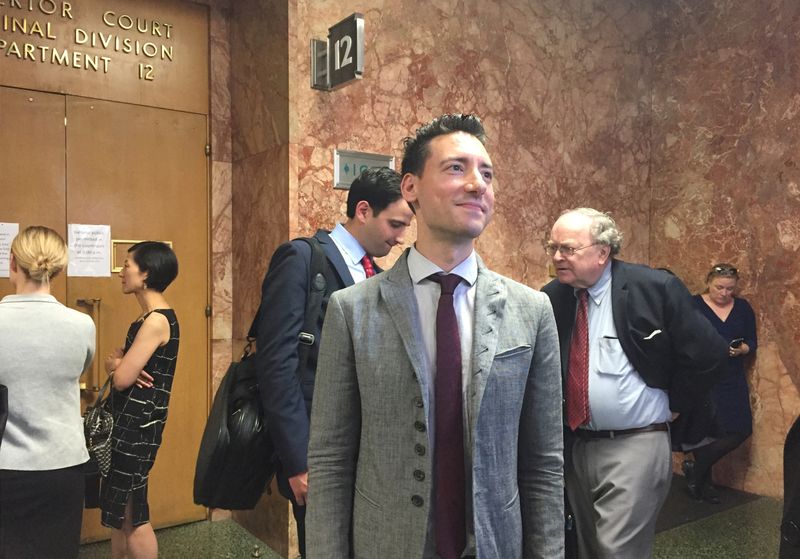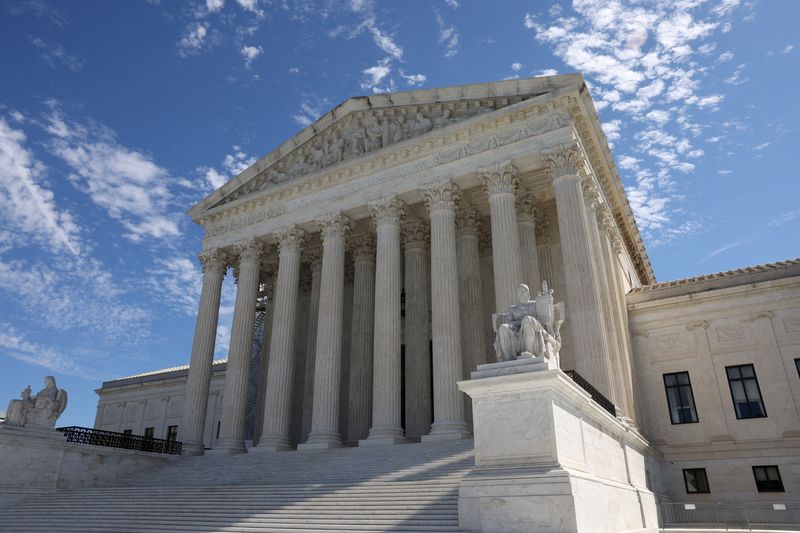By Andrew Chung
WASHINGTON (Reuters) -The U.S. Supreme Court on Monday declined to hear a bid by anti-abortion activists to throw out more than $2 million in damages they were ordered to pay Planned Parenthood after secretly recording video of abortion providers in a scheme to try to show the illicit sale of aborted fetal tissue for profit.
The justices turned away the appeal by David Daleiden and his group, the Center for Medical Progress, of a lower court's decision in 2022 upholding most of the damages in a lawsuit by Planned Parenthood, a women's healthcare and abortion provider, accusing the defendants of conspiracy, eavesdropping and other claims. The lower court rejected the argument made by the defendants that with the secret recording they were exercising their right to free speech under the U.S. Constitution.
The justices announced their action on the first day of their new nine-month term.
Planned Parenthood filed suit in 2016 against Daleiden and his California-based organization in federal court in San Francisco seeking monetary damages, accusing them of violating the Racketeer Influenced and Corrupt Organizations Act (RICO) and engaging in fraud, trespassing, breach of contract and illegal secret recording.
The case before the Supreme Court centered on whether Planned Parenthood, even though it did not sue for defamation, should have to overcome strict limits that the justices through past rulings have placed on damages that public figures may recover for alleged harms related to a publication.
Various activist groups on the left and right conduct undercover operations often involving secret recording. Daleiden and his team portray themselves as investigative journalists and have said that the judgment against them in the suit threatens undercover reporting, a technique that can help expose wrongdoing and corruption.
Planned Parenthood has said the defendants are "ideological activists" - not journalists - whose videos were heavily edited as part of a smear campaign aimed at destroying the organization.
Using a shell company and fake identification, the activists gained access to Planned Parenthood and National Abortion Federation conferences and other locations where they recorded staff using hidden cameras.
The Center for Medical Progress released videos in 2015 purporting to expose Planned Parenthood officials trafficking in aborted fetal parts, sparking controversy, congressional inquiries and investigations in various states.
Planned Parenthood denied profiting from fetal tissue donation for medical research. Lower courts concluded that the videos did not contain evidence of wrongdoing.
A jury sided with Planned Parenthood in the lawsuit, and a judge awarded $2.4 million in damages - including for security costs to prevent future infiltration and targeting of doctors and staff - as well as more than $13 million in attorneys' fees and costs that are the subject of a separate appeal.
The San Francisco-based 9th U.S. Circuit Court of Appeals upheld most of the award last year, concluding that the First Amendment did not protect the defendants.

Noting that damages had been awarded for harms related to the infiltration, not to Planned Parenthood's reputation, the 9th Circuit said, "Invoking journalism and the First Amendment does not shield individuals from liability for violations of laws applicable to all members of society."
Daleiden and another activist also face an upcoming criminal trial in California in connection with the secret recordings.
